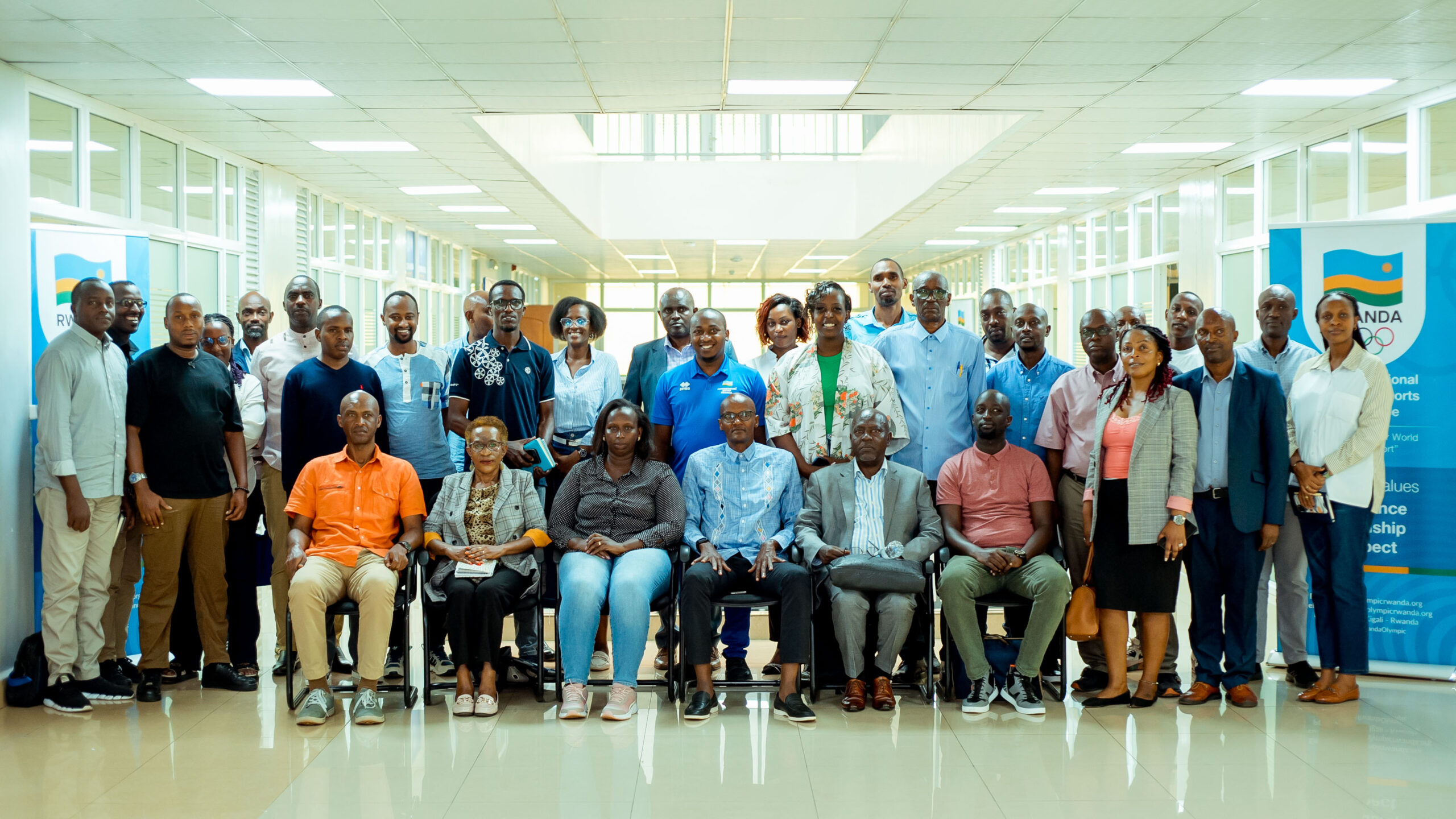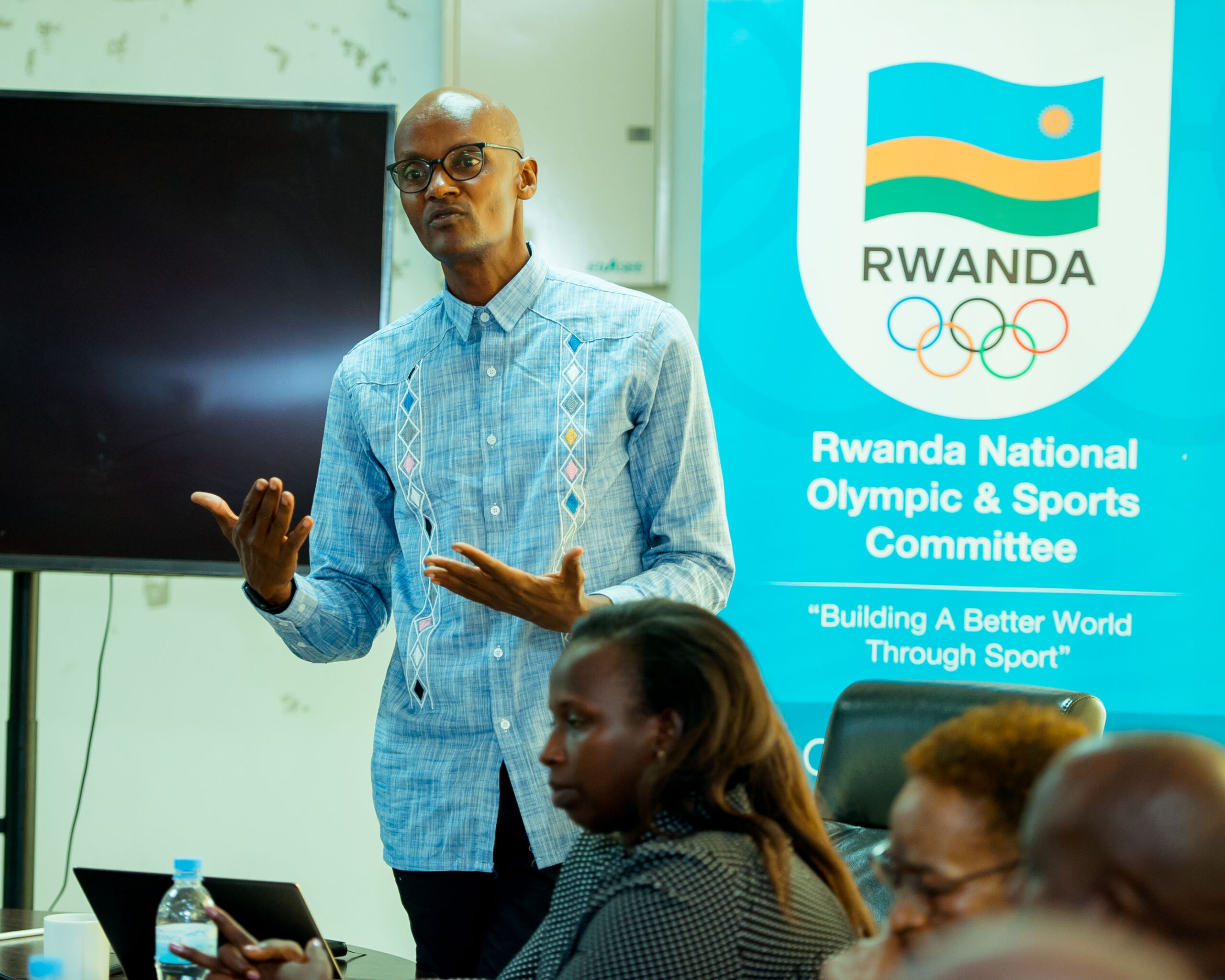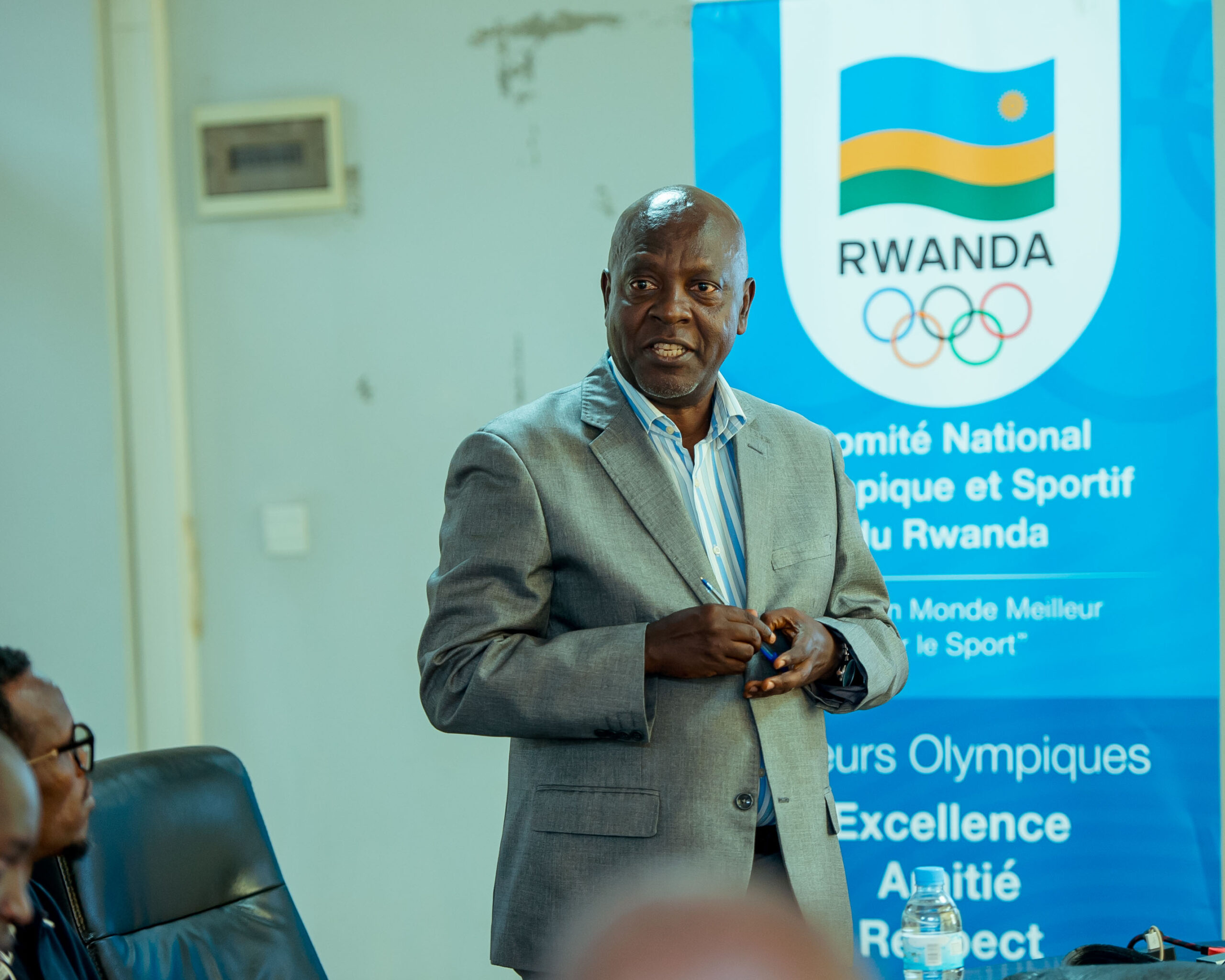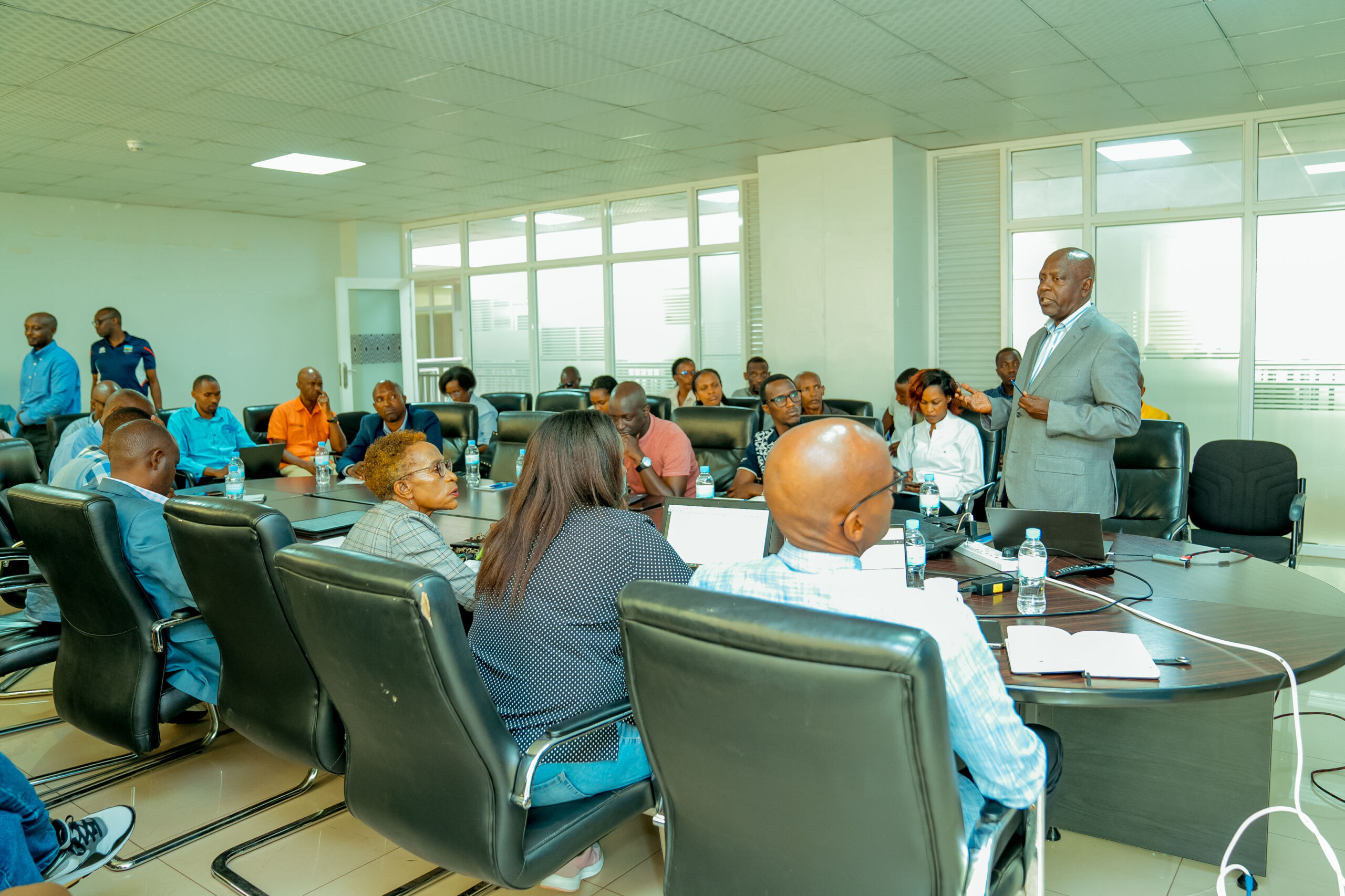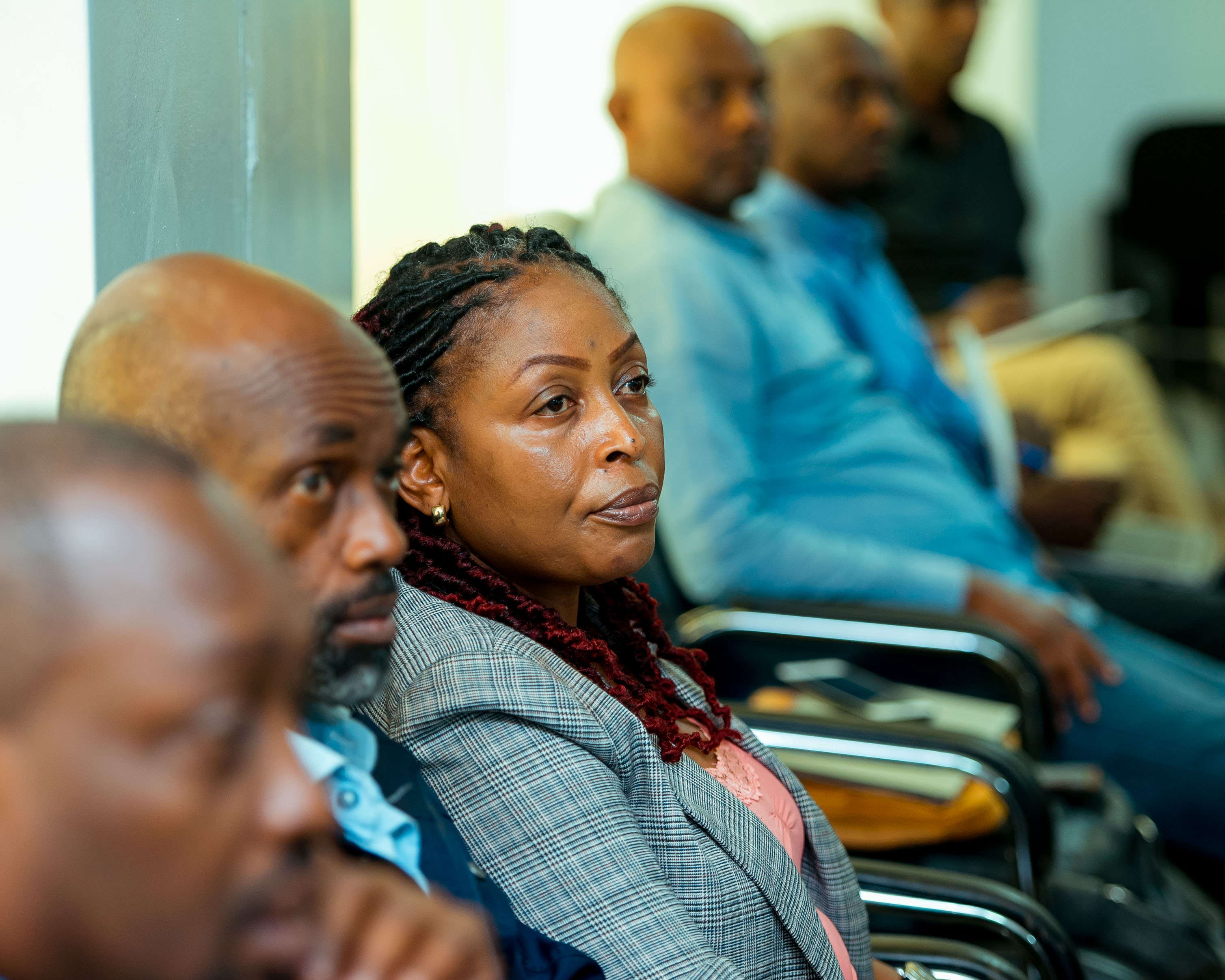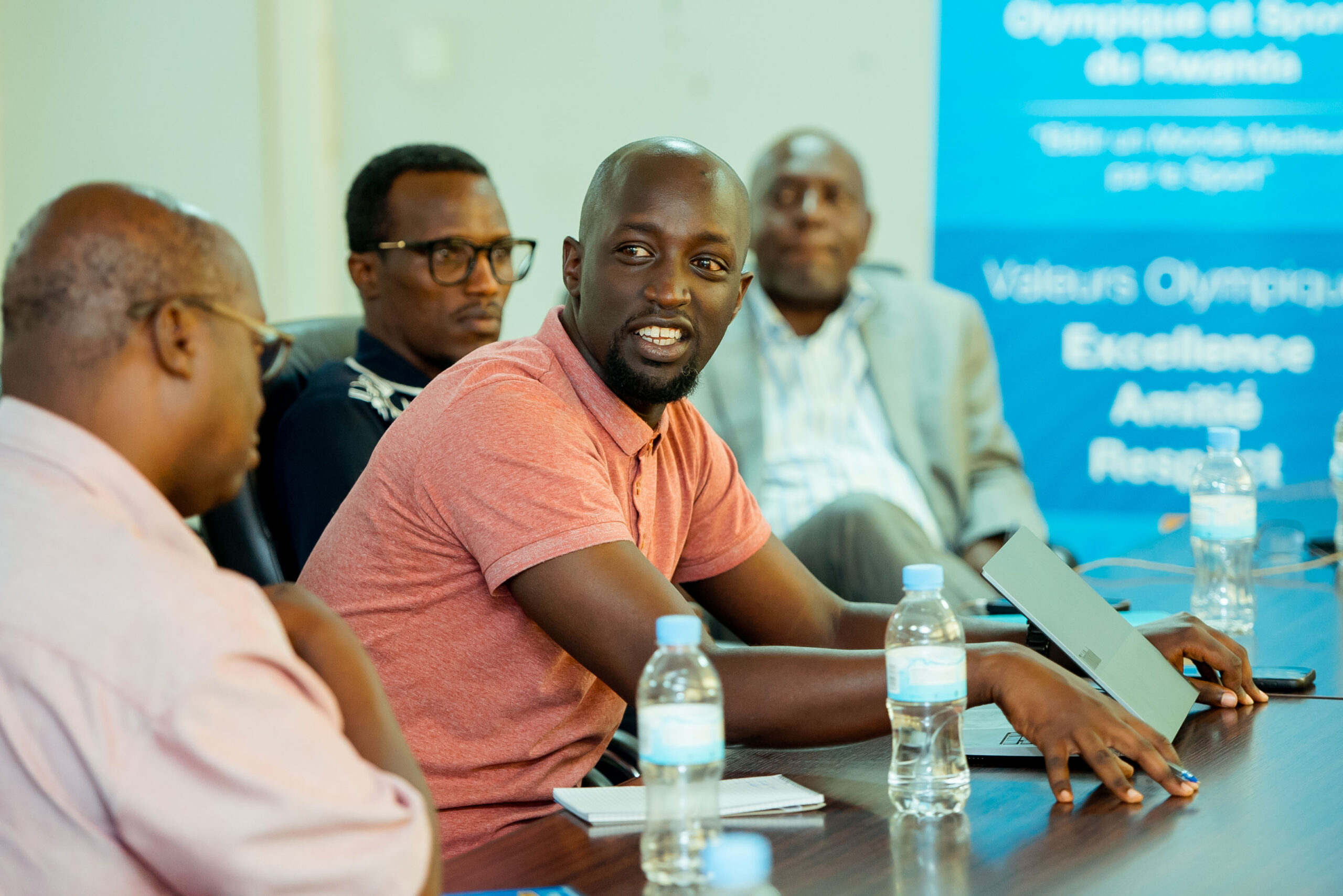On Friday, 7th, February/2025, The Rwanda National Olympic and Sports Committee (RNOSC) hosted a specialized workshop aimed at equipping National Sports Federations and Associations with key insights into the newly revised legal framework for Non-Governmental Organizations (NGOs). The event, held at the RNOSC Conference Hall, brought together 42 participants, including representatives from 35 National Sports Federations and Associations, the Ministry of Sports, the RNOSC Executive Committee, the RNOSC Legal and Ethics Commission, and RNOSC staff members.
The workshop was officially inaugurated by RNOSC Secretary General Joseph Kajangwe, who expressed his appreciation for the participation of the federations and the Ministry of Sports. “There’s a new law governing NGOs that directly impacts sports governance organizations. We’ve invited the Rwanda Governance Board (RGB) to provide in-depth insights on these changes to align them with our existing knowledge. We look forward to having improved compliance from this session,” he stated.
The event featured Aimé Barihuta, a Civil Societies and Public Policies Verification & Authentication Specialist from the RGB, as the guest speaker. He provided an in-depth analysis of how the new legal framework affects sports governance institutions and guided participants through the compliance process. The session allowed sports federations to raise specific concerns, ensuring a participatory approach to aligning legal obligations with operational realities.
The workshop covered:
- An overview of the new law governing NGOs and its implications for sports federations.
- A roadmap for implementing the revised legal framework.
- An interactive Q&A session that allowed stakeholders to seek clarifications and guidance on compliance.
The primary objectives of the workshop were to foster dialogue between sports federations and regulatory authorities, ensure full compliance with the new law, and provide a clear roadmap for its implementation. By the end of the session, participants had a stronger understanding of:
- The legal adjustments and their impact on the sports sector.
- Actionable steps required for compliance to maintain their legal status.
- The importance of continuous engagement with regulatory bodies to facilitate smoother operations.
As the workshop concluded, Secretary General Kajangwe expressed gratitude to the Rwanda Governance Board and the Ministry of Sports for their collaboration in making the event possible. He also emphasized the importance of meeting compliance deadlines to avoid potential legal consequences, including the risk of losing incorporation status.
With the regulatory landscape in Rwanda evolving, the RNOSC reaffirmed its commitment to ensuring its member federations and associations remain informed, compliant, and well-prepared for the future. This workshop marks a crucial step toward achieving that goal, strengthening governance within Rwanda’s sports sector.

